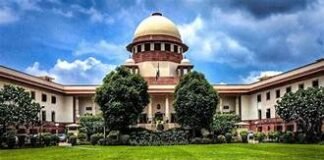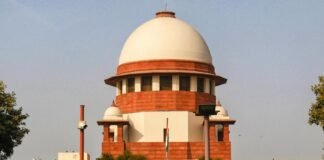Calcutta High Court rules stock exchange and bank routes can’t legitimise bogus capital loss claims. Read more on the Court’s critical observations.
In a significant ruling on tax evasion, the Calcutta High Court has held that legitimate banking and stock exchange channels cannot conceal sham transactions involving dubious capital loss claims.
Calcutta High Court Takes Strong Stand Against Bogus Capital Loss Transactions
The Calcutta High Court has issued a strong reminder to taxpayers and financial intermediaries that mere routing of transactions through legal stock exchange and banking channels does not grant legitimacy to fraudulent practices. The ruling came in a case involving companies alleged to have manufactured capital losses to evade taxes.
A division bench comprising Justice T.S. Sivagnanam and Justice Chaitali Chatterjee (Das) observed that the evidence presented in the investigation was thoroughly disclosed to the assessee. The Court upheld the tax authority’s finding that the transactions in question were part of a structured sham.
“The entire information contained in the investigation report was apprised to the assessee by the assessing officer and thereafter the show cause notices were issued accordingly,” the bench stated.
The Capital Loss Scam Explained
The case revolved around a common form of tax evasion where individuals or entities fabricate artificial capital losses by purchasing and selling shares of shell or penny stock companies. These losses are then used to offset genuine capital gains, effectively reducing tax liabilities.
While these transactions are executed through registered stock brokers and legitimate banking channels, the underlying companies often lack genuine business activities, and the prices are manipulated to generate fictitious losses.
In this particular case, the income tax department had relied on an extensive investigation report, revealing that the shares involved were routinely traded to accommodate fictitious losses. The Calcutta High Court noted that the assessee was given full opportunity to respond to the findings before any adverse conclusion was drawn.
Court’s Reasoning: Form Cannot Override Substance
The bench ruled that merely using a recognised platform like a stock exchange or formal banking route does not lend authenticity to transactions if the substance is proven to be fraudulent. They reinforced the well-established tax principle of “substance over form”.
“Transactions which are sham in nature cannot be sanctified just because they pass through official routes. The intent and content must be genuine,” the Court noted, reiterating the department’s argument.
This approach echoes the Supreme Court’s earlier stance in cases like McDowell & Co. v. CTO, where tax avoidance through colourable devices was held to be impermissible.
Implications for Investors and Intermediaries
This judgment has far-reaching implications for both investors and market intermediaries. It sends a clear message that regulatory authorities are empowered to pierce the veil of formal documentation and investigate the actual intent behind suspicious transactions.
Experts in tax law believe this ruling strengthens the Income Tax Department’s powers during scrutiny assessments, particularly in matters involving bogus long-term capital gains or losses under Sections 68 and 69 of the Income Tax Act.
It also brings brokers, consultants, and even auditors under a more watchful lens. Financial institutions and intermediaries are likely to revisit their compliance and due diligence protocols in light of this verdict.
No Respite in Procedural Technicalities
The assessee had argued that procedural lapses in the show cause process invalidated the entire assessment. However, the High Court rejected this line of defence, observing that substantial compliance had been maintained, and the assessee was made fully aware of the charges and given an opportunity to reply.
“Technical arguments cannot be used to shield what is otherwise an established sham,” the Court remarked.
This part of the ruling is consistent with a growing judicial trend where substance takes precedence over procedural hyper-technicalities, especially in economic offences and white-collar crime matters.
Alignment with National Tax Enforcement Trends
The Calcutta High Court’s decision is in line with recent steps by the Income Tax Department and the Central Board of Direct Taxes (CBDT) to clamp down on bogus LTCG scams and capital loss manipulations. These schemes not only cause revenue loss but also distort the stock market ecosystem.
Further, the judgement reiterates the judiciary’s broader stance that tax planning must be legitimate, and manipulative arrangements cannot be protected under the guise of formal compliance.
What’s Next?
Legal analysts suggest that more such rulings can be expected in the near future, as enforcement agencies leverage data analytics and AI-based red-flagging tools to identify shell companies and dubious trades.
For taxpayers, this judgment serves as a warning: using legitimate systems to carry out illegitimate practices will not shield them from liability. For tax professionals and intermediaries, it underscores the importance of transparency, due diligence, and ethical conduct.
🔗 Dive deeper into legal trends on our National News page or explore sharp legal Insights curated by The Legal Observer team.
📺 Check out case explainer videos on our YouTube Channel.





